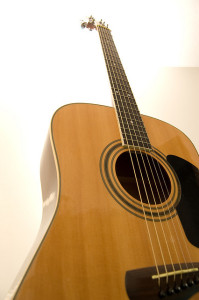
“Stand Tall, Guitar” by Chris Miller, licensed under CC BY-NC-SA 2.0
The past 15 months have inspired me to reconsider so many of my long-held truths. In this series of posts, I’m laying bare the evolution of my attitudes, the fears and reservations that have held and continue to hold me back, and the steps taken so far to get closer to where I want to be.
Re-dos, re-takes, and do-overs
Reading Rick Wormeli and watching his TED talk on the subject started the ball rolling for me on this one. Further fuel was added by the thoughts and research of Carol Dweck and the Growth vs. Fixed Mindset which Wormeli mentions at the beginning of the talk. Along the way, I watched another enlightening presentation about skateboarding by Dr. Tae.
Whether these beliefs are practical or not, whether they conform to the way we have always done “school” or not is truly not relevant. Eternal idealist, I am holding as my guiding star what should be, rather than what is or even what can be. The three points below summarize my idealistic epiphany:
- Failure is not merely a common human occurence, but a necessary stepping stone to success. We fall countless times while learning to walk. We stumble over sounds and syllables on the way to learning speech and language. Nothing we do, love to do or learn to do well is an exception. I’ve spent more hours than I could recall playing guitar. The fingers of my left hand have developed callouses and the muscles have ached. Despite all the failure and the inability to do what I want or what others can do, I still pick up the instrument for the joy it provides, and I still agonize to learn new songs, new licks, new techniques, new chords. School ought to be this way, too. Missteps ought to be allowed, maybe even encouraged. If students are being asked to demonstrate too often what they do well, they are not growing enough. Granted, there is a satisfaction in succeeding, but it needs to be nurtured more than the satisfaction of having succeeded. Everything is a formative assessment. Failure, by another definition, is not being able to do it as well as one will later, or being able to do fewer things than one will be able to do later. Progress and growth require a vision of greater and later accomplishment.
The satisfaction of succeeding needs to be nurtured more that the satisfaction of having succeeded.
- If learning the content or the skill matters–to society and/or to the learner–the amount of time needed to learn it can not and should not matter. We have gotten this wrong for so long that we’ve alienated the vast majority of our fellow humans, far too many of whom have learned little more than to hate school and to hate learning itself. The factory model of instruction, with one conveyor-belt speed for all, is the main culprit. We’ve anointed ourselves as gate-keepers, sweeping off the belt those who can’t keep up, and lavishing praise on those who trot along without breaking a sweat. A better model might involve putting each individual learner on his/her own treadmill that turns independently, creating that perfect zone of proximal development for each one. An even better model may be to allow learners the joy of the walk, jog or run through nature, discovering, dwelling, turning back to revisit, accompanied by a trainer/guide to urge them on and point things out.
- Neither failure at first attempt nor success at final attempt is as important as the process of expanding one’s knowledge and abilities. It makes no sense to average the first and the last attempt. (More in a later post about grades.) Success in the final frame trumps all the unsuccessful attempts. It also makes no sense to consider one successful attempt as the end. We don’t stop being able to crawl once we can walk, nor do we give up walking once we can run. Students should be allowed to continue to pursue their knowledge and skills until they can nail them. Then, the new knowledge and skills should build on the old ones so that not only do students get the first set right, but it becomes so automatic that they couldn’t get it wrong.
I am not insensitive to the pull of practical concerns. Educating scores of young people together requires “COMMON” threads, “CORE” principals, and an understanding of what normal progression looks like. All good teachers know when they’re moving too slowly or too quickly. By the time some students are 10, they may be as much as four or five years behind age-mates who’ve progressed more quickly. Would it be appropriate for classrooms to have 10- and 5-year-olds all working on simple addition? I am not sure, but I also wonder if it is appropriate for 14-year-olds to be pursuing mastery of algebra when large segments of them never really conceptualized addition, subtraction, multiplication or division. How can we possibly demand mastery before moving on? I do not pretend to know yet HOW what I’m proposing can be achieved. Will each one of the students in my care be working on a different objective? Is my already taxed attention to be further diluted? When does the timer run out on certain skills and competencies? Never?
In the next phase of my professional life, I aim to find answers to these questions, rather than to allow their mere existence to blind me to truth. I am now more compelled to figure out how to do it, because why we should do it is so overwhelmingly clear.

